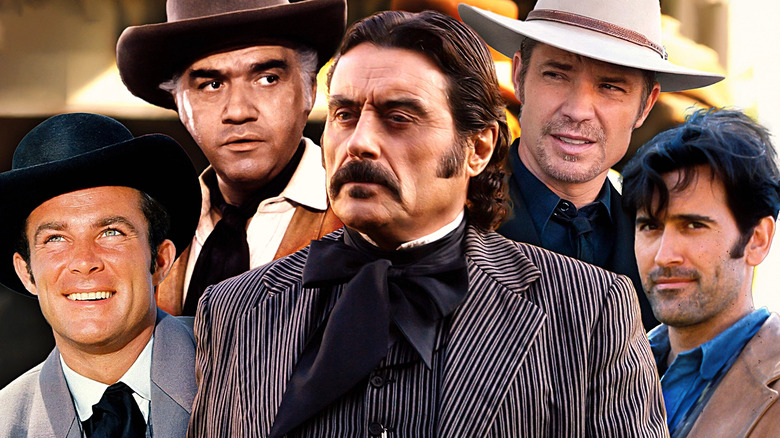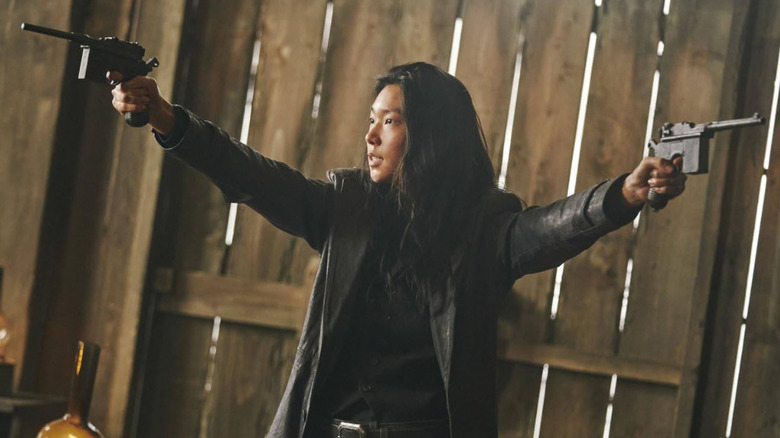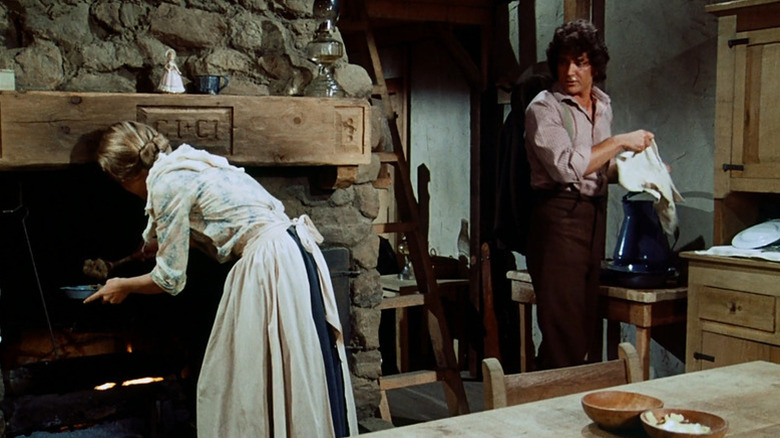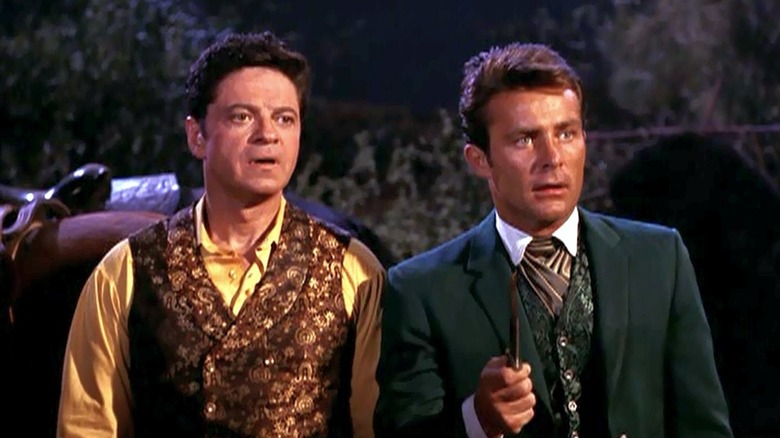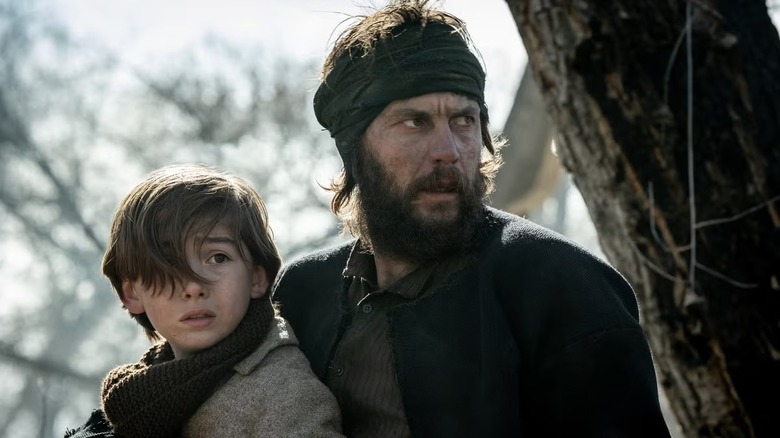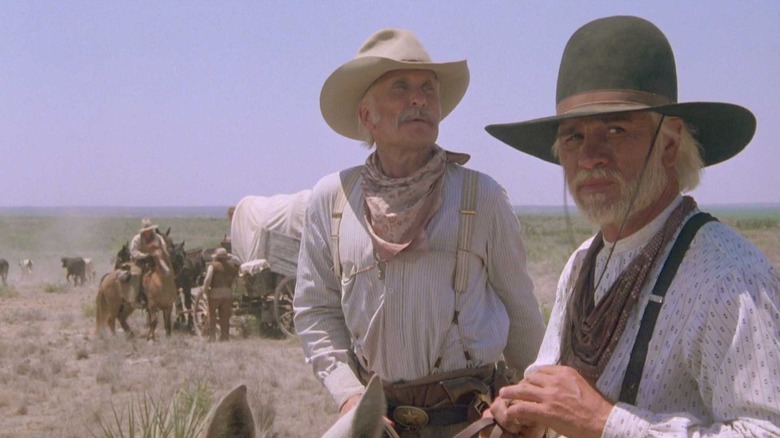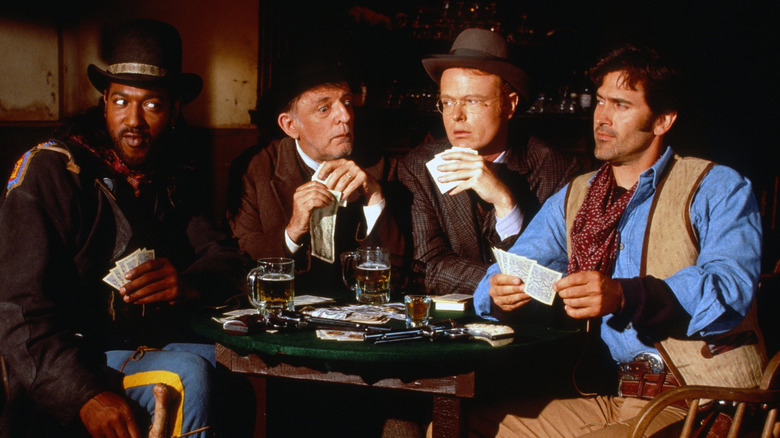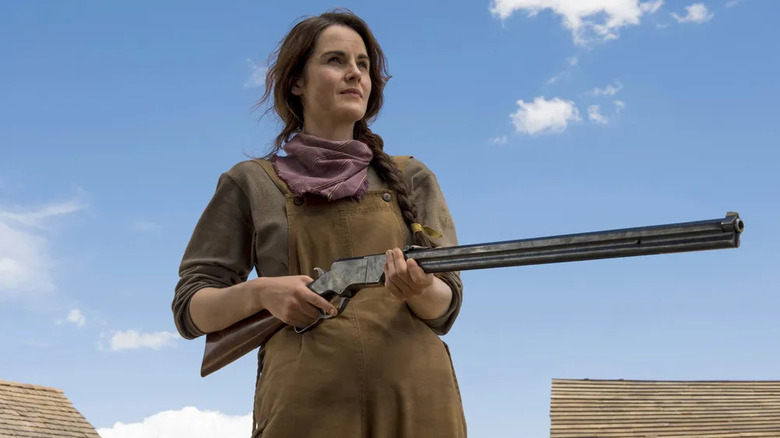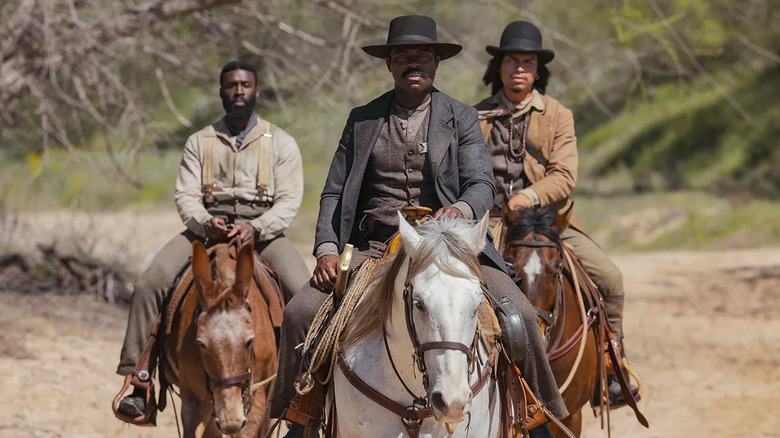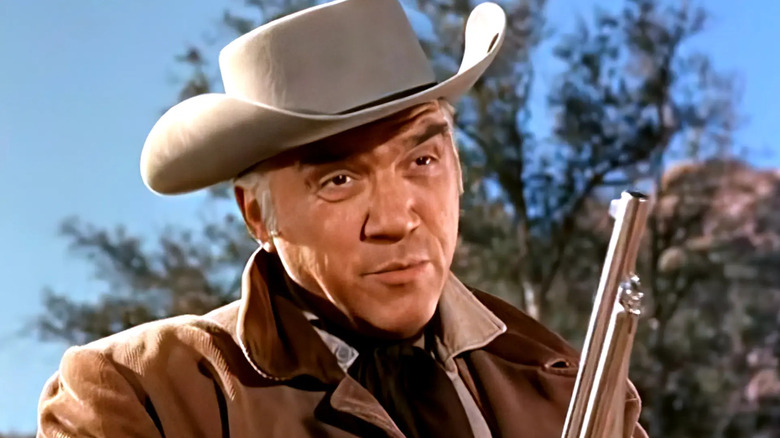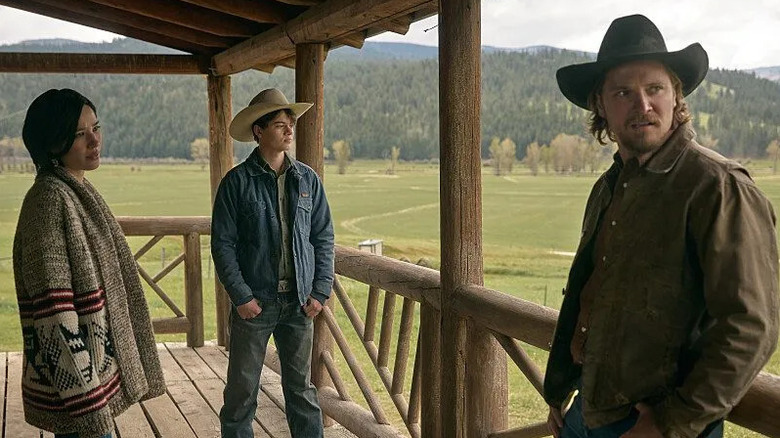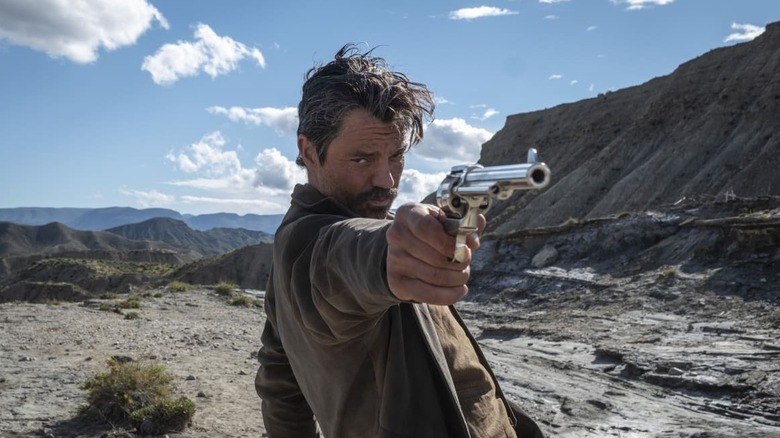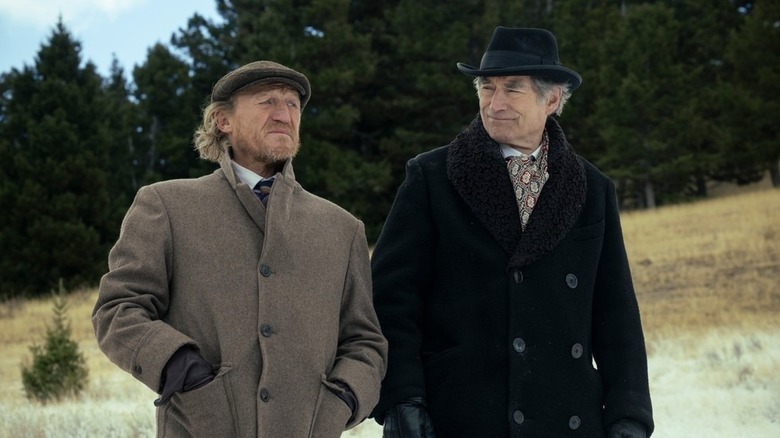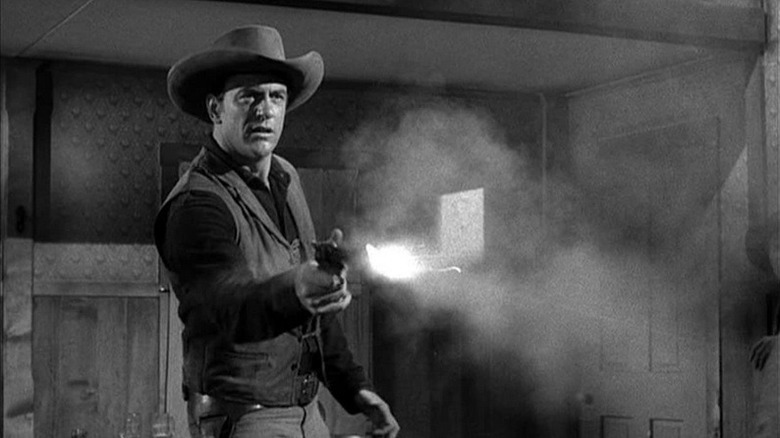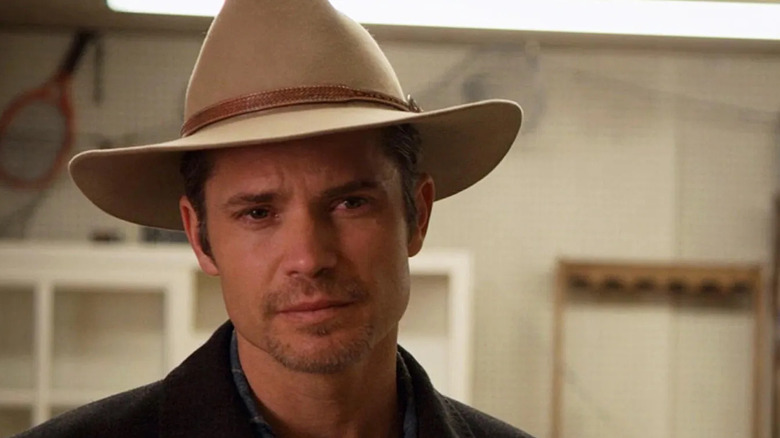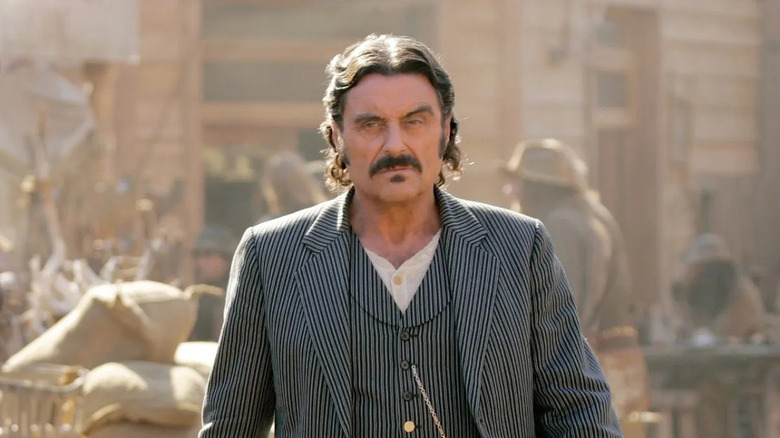The 15 Best Western TV Shows Ever, Ranked
There are few American archetypes that are more enduring and iconic than that of cowboys in the Wild West. From pulp paperback novels to the silver screen, Westerns have been thrilling audiences worldwide for over a century, with that distinction also spreading to television shows. Westerns once dominated the television airwaves in the United States, with some of the longest-running shows in the medium's history coming from the genre. As a testament to their timeless appeal, Westerns have seen a resurgence of popularity recently.
As their ubiquity solidified, Westerns have expanded beyond their usual American Southwest period piece setting with grounded stakes. The genre has proven flexible enough to incorporate different global environments, time periods, even lacing in elements of the supernatural and science fiction. What are constants within the genre are people standing up in largely lawless and remote areas to defend themselves from those that would openly exploit them. Here are the 15 best Western TV shows ever ranked, ready for your next frontier-centric binge.
Song of the Bandits
East Asia may not be the first location viewers may think of to set a Western but the Netflix original series "Song of the Bandits" uses this offbeat locale well. Set during the oppressive Japanese occupation of Korea in the 1930s, the show explores the plight of Korean refugees who have fled to the Gando region in China. Former Japanese soldier Lee Yoon (Kim Nam-gil) seeks to atone for his past by protecting the vulnerable from those that would attempt to prey on them. Lee's exploits cause him to become a wanted man, with the Japanese military placing a bounty on his head.
"Song of the Bandits" is certainly the most unique entry on this list, primarily because of its difference in setting, but is no less effective as a Western. All the common genre tropes are there, from roving bandits, as the title would suggest, to gunfights and train robberies. This is coupled with a revolutionary narrative as Lee becomes involved with freedom fighters looking to liberate Korea from the Japanese. A creative reinvention of what a Western can be, "Song of the Bandits" is one of the more underrated K-dramas available on Netflix.
Little House on the Prairie
The most overtly family-friendly show on this list, "Little House on the Prairie" loosely adapts the children's novels by Laura Ingalls Wilder. The long-running series follows the Ingalls family as they settle in a frontier Minnesota town in the late 19th century. Charles (Michael Landon) and Caroline Ingalls (Karen Grassle) raise their growing family in their rural town. Charles, in particular, plays a major role in shaping his children's upbringing, while also becoming an outstanding pillar of the community.
Essential Western comfort viewing, "Little House on the Prairie" takes on a pastoral approach to depicting the West. Landon's performance as Charles and creative control behind-the-scenes made the show a largely feel-good take on the genre for its nine-season run. As such, there isn't a lot of gunslinging action or melodramatic moments to the show, but that was never really its point. Instead, "Little House on the Prairie" offers a more serenely bucolic Western, more interested in celebrating its frontier spirit than leaning into cheap thrills.
The Wild Wild West
The Old West gets a healthy dose of James Bond-inspired action and steampunk science fiction with the '60s series "The Wild Wild West." Like the widely maligned '90s movie, the television series follows Secret Service agents James West (Robert Conrad) and Artemus Gordon (Ross Martin). Following orders from President Grant, the two federal agents travel in a gadget-laden private train to protect the country's interests in the 1870s. West handled much of the physical action and wooing of requisite love interests while Gordon developed the advanced gadgetry and served as the duo's master of disguise.
At a time when conventional Westerns flooded the airwaves, "The Wild Wild West" offered a fun and stylish alternative. With its comic book-inspired opening titles and outlandish villains, the show pushed the genre as far as it could go, veering regularly into sci-fi and espionage. Every episode had at least one major action set piece, with Conrad performing most of his stunts and striking up an easygoing rapport with Martin. Running for four seasons, "The Wild Wild West" gleefully throws out any notion of historical authenticity for its freewheeling entertainment.
American Primeval
Arguably the most graphically violent show on this list, the Netflix original limited series "American Primeval" examines a particularly vicious period in frontier history. In 1857, the Utah Territory became consumed with bloody violence as militant Mormon settlers brutally kept outsiders from the region. The show opens in with the Mountain Meadows Massacre, targeting a settler wagon train moving through the territory, with survivor Sara Holloway (Betty Gilpin) fleeing with her son. When news spreads that Sara is a wanted with a sizable bounty, she is hunted by bounty hunters, outlaws, and militants still on the loose.
Anchored by strong performances from Gilpin and co-star Taylor Kitsch, "American Primeval" is a brutal Western tale. Violence is omnipresent throughout the story, fueling its characters and blinding them from any sense of reason or empathy. With series creator Mark L. Smith also being the screenwriter for 2015's "The Revenant," the show features a similar grim tone and harsh look at the unconquered wilderness. Unrelenting and merciless, "American Primeval" certainly isn't for squeamish audiences but what it does, it does very well.
Lonesome Dove
The late author Larry McMurtry's 1985 novel "Lonesome Dove" was adapted into a limited series of the same name in 1989, boasting an all-star cast. The story revolves around former Texas Rangers Gus McCrae (Robert Duvall) and Woodrow Call (Tommy Lee Jones) who run a livery in the border town of Lonesome Dove. Disillusioned with their stagnating lives as they enter their twilight years, the two decide to drive a herd of cattle and horses to Montana. Along their arduous journey, the duo encounter the dangers of the untamed frontier, including deadly bands of outlaws.
Running for four episodes, each roughly the length of a feature film, "Lonesome Dove" was a critical and commercial success, especially at a time when Westerns were largely in decline. Both Duvall and Jones were nominated for Emmy Awards, as well as four of their co-stars, while the show itself won six Emmys, including outstanding miniseries. The series inspired numerous spin-offs and continuations, but none with the same level of acclaim as the initial adaptation. A sweeping saga following cowboys getting one last ride and blaze of glory, "Lonesome Dove" sets the template for Western limited series.
The Adventures of Brisco County, Jr.
The most charming B-movie actor of his generation, Bruce Campbell is a wry and wise-cracking national treasure. In 1993, Campbell starred as the titular cowboy in the Fox series "The Adventures of Brisco County, Jr." Set in 1893, Brisco sets out to track down the outlaw gang that murdered his father in the series premiere. The gang, led by John Bly (Billy Drago) are out to recover a mysterious device, known simply as the Orb, which grants supernatural abilities to those who interact with it.
Capitalizing on Campbell's natural charisma, "The Adventures of Brisco County, Jr." relies heavily on humor and exaggerated premises. With the Orb and other eccentric figures Brisco encounters, the show embraces its science fiction potential, including a healthy amount of steampunk technology. But for as wonderfully wacky as the series gets, it still prominently includes the usual Western tropes that come with the genre. Tragically only running for a single season, "The Adventures of Brisco County, Jr." embodies the term cult classic.
Godless
The 2017 Netflix original limited series "Godless" provides a welcome and overdue change in perspective on the Western genre. The show is set in 1884 as the New Mexico Territory is terrorized by outlaw Frank Griffin (Jeff Daniels) and his unruly gang. The mining town of La Belle is run primarily by women following a mining accident that claimed most of the community's men as they attract Griffin's unwanted attention. This leads to a bloody collision course between the town and the outlaws, with widowed rancher Alice Fletcher (Michelle Dockery) playing a pivotal role in the ensuing conflict.
Written and directed by Scott Frank, "Godless" is an epic Western that takes full advantage of its landscape to tell its visceral story. Dockery delivers an absolute standout performance and the show's overall change in perspective breaks up the monotony of the often male-dominated genre. And though Daniels has played villainous characters before, his turn as Griffin offers him an especially chilling role. Cinematically told and with everyone in the cast and crew firing on all cylinders, "Godless" is among Netflix's best limited series of any genre.
Lawmen: Bass Reeves
One of the first black U.S. Marshals in history was Bass Reeves, who tracked down thousands of notorious criminals in the late 19th century. Reeves' exploits are chronicled in the Paramount+ original series "Lawmen: Bass Reeves," produced by television hitmaker Taylor Sheridan and premiering in 2023. David Oyelowo stars as Reeves, who maintains the law in what is now Oklahoma, with Reeves and his fellow federal lawmen based out of Arkansas. This is balanced with Reeves' home life, with Reeves joined by his wife Jennie (Lauren E. Banks) and children on the frontier.
Drawing from the first two historical novels about Reeves by author Sidney Thompson, "Lawmen: Bass Reeves" moves at a deliberate pace across its eight episodes. This allows viewers to get a better idea of who Reeves is between the action, exploring the toll his job takes on his domestic life. Oyelowo helps realize that emotional investment, offering a more humanist portrayal of this procedural's protagonist. Originally planned to be an extension of Sheridan's growing "Yellowstone" television universe, "Lawmen: Bass Reeves" works much better as its own standalone show.
Bonanza
The second-longest running Western in television history is "Bonanza," which ran for 14 seasons from 1959 to 1973. The show details the saga of the Cartwright family as they live by Lake Tahoe in Nevada in the wake of a nearby silver lode being discovered. Family patriarch Ben (Lorne Greene) raises his three sons, each born from a different wife, on their ranch of Ponderosa. In addition to navigating their complex family dynamic, the Cartwrights deal with unsavory types passing through town and the rapidly evolving social issues in the wake of Civil War.
What set "Bonanza" apart from its contemporaries was the strong family relationships at its core, in addition to the usual Western action. Other shows at the time, like "The High Chaparral," had families, but none as richly realized as "Bonanza." The natural rapport between Greene and co-stars Dan Blocker and Michael Landon, with the latter two playing Ben's youngest sons, made the show such a memorable watch. A hallmark of the genre on television, "Bonanza" provided a deeper and more nuanced look at what Westerns on TV could be.
Yellowstone
The show largely behind the current resurgence of interest in Westerns, especially on television, is "Yellowstone," created by Taylor Sheridan. A neo-Western set in Montana, the series is centered on the Dutton family as they run the Yellowstone Dutton Ranch and its associated business interests. Family patriarch John Dutton (Kevin Costner) becomes increasingly involved in state politics while his children squabble among themselves. Meanwhile, both longtime and new enemies of the Dutton family plot from the shadows, threatening their livelihood and the ranch itself.
Sheridan had worked in the Western genre before, but never with the same level of success as "Yellowstone." The show essentially became ubiquitous with modern Westerns, and for good reason, with the Dutton family's journey one of the most engrossing in recent years. Admittedly, the series does go over-the-top on multiple occasions, with extremely wild plot developments, but remains as entertaining as ever no matter how ludicrous it gets. One of the best shows in the genre, no matter what time period, "Yellowstone" is worth the hype.
That Dirty Black Bag
Spaghetti Westerns, Westerns produced in Europe with predominantly Italian crews, redefined the overall genre in the '60s. The spirit of Spaghetti Westerns is alive and well in the AMC+ original series "That Dirty Black Bag," created and written by Italian filmmakers and filmed in Europe and Morocco. Set in the fictional Southwestern town of Greenvale, Sheriff Arthur McCoy (Dominic Cooper) presides over a community full of thieves and killers. This town changes forever with the arrival of bounty hunter Red Bill (Douglas Booth), who keeps the decapitated heads of bounties unceremoniously stuffed in a bag.
Dark and vicious, "That Dirty Black Bag" brings the same strange but effective tone to the genre that Italian filmmakers like Sergio Corbucci had decades ago. Everyone in the ensemble cast brings their A-game to their respective roles, especially Cooper and Booth, with their characters on a collision course in the story. All classic genre tropes are there front and center, while the landscapes and style are reminiscent of the movies that made Clint Eastwood a star. Overlooked and under-appreciated, "That Dirty Black Bag" is a must-watch for any Spaghetti Western fan.
1923
Of all the "Yellowstone" spin-offs, the one that rises above the rest of the Taylor Sheridan-helmed franchise is "1923." In this era of the Dutton family, the Yellowstone Dutton Ranch is led by married couple Jacob (Harrison Ford) and Cara Dutton (Helen Mirren). The family and their business is impacted by Prohibition, a severe drought, and financial instability in the lead-up to the Great Depression. As unrest escalates, the Duttons contend with their deadly rivals Banner Creighton (Jerome Flynn) and Donald Whitfield (Timothy Dalton).
"1923" is arguably the darkest show in the "Yellowstone" franchise, largely keeping the Duttons on the defensive and on the brink of defeat. Harrison Ford and Helen Mirren anchor the whole show with their usual understated acting chops. The two veteran actors present a sense of world-weariness befitting the story, effectively matched by Dalton as their greatest adversary. Only upping its viciousness in its second season, "1923" is as brutal as the "Yellowstone" franchise gets.
Gunsmoke
Simply put, there's no way one could put together a list of television Westerns and not at least mention "Gunsmoke." Running for 20 seasons, the show was one of the longest-running scripted television series for decades before it was eventually dethroned by "The Simpsons." The series followed the exploits of U.S. Marshal Matt Dillon (James Arness) as he kept the peace in and around Dodge City in the 1870s. Dillon worked with a rotating set of deputies while maintaining a close personal relationship with local saloon proprietor Miss Kitty (Amanda Blake).
With its enduring popularity across a multi-decade run, "Gunsmoke" was the premier television Western for an entire generation. Boasting an introduction by legendary Western movie actor John Wayne, the show came out the gate with its genre bonafides proudly on display. Virtually every major genre trope was utilized in the series while the show was a proving ground for many young actors, including Harrison Ford (who played two completely different characters on "Gunsmoke") and Burt Reynolds. "Gunsmoke" defined Western television, outlasting most of its contemporaries and carrying the genre as it lost momentum on the big screen.
Justified
When it comes to neo-Westerns, the definitive show for well over a decade is the FX series "Justified," adapting the work of noted crime author Elmore Leonard. Timothy Olyphant stars as U.S. Marshal Raylan Givens, whose shoot-first reputation leads to his reassignment to eastern Kentucky. Back in his hometown, Givens battles various criminal families and drug-running syndicates in his jurisdiction. At the core of the series is Givens' long-running feud with career criminal and resident ne'er-do-well Boyd Crowder (Walton Goggins).
Both Olyphant and Goggins give the ultimate performances of their respective careers in "Justified," making the show one of the most all-around entertaining modern Westerns. Superbly written and directed, the show's dialogue crackles off the screen, flying just as fast and furious as the bullets. That self-assured confidence in the storytelling only noticeably improves as the series progresses, making the culmination of Givens and Crowder's dynamic feel all the more earned. Arguably the best adaptation of Leonard's work to date, "Justified" is a modern Western masterpiece.
Deadwood
The ultimate in prestige Western television remains "Deadwood," which went criminally overlooked during its initial run on HBO. Set in Deadwood, South Dakota as the town sees an influx in settlers following the discovery of nearby gold deposits, the community is rife with murderous criminals. Recent resident Seth Bullock (Timothy Olyphant) reluctantly assumes the role of sheriff, leading to him frequently butting heads with town's unscrupulous saloon owner Al Swearengen (Ian McShane). As Bullock settles into his new responsibilities, Deadwood sees the arrival of serial killers and grifters looking to prey on the growing community.
Credit is due to Timothy Olyphant for starring in two of the greatest Western television series of the 21st century because "Deadwood" is HBO's period piece magnum opus. Series creator David Milch drew from historical records of the Deadwood for narrative material, including the real-life experiences of Bullock and Swearengen. That level of authenticity and attention to detail comes through, depicting the Old West as a deadly and ugly place, but no less fascinating to audiences. One of HBO's best shows ever, "Deadwood" received a revival film 13 years after the series' cancellation to give it a proper ending, closing out a masterclass of the genre.
